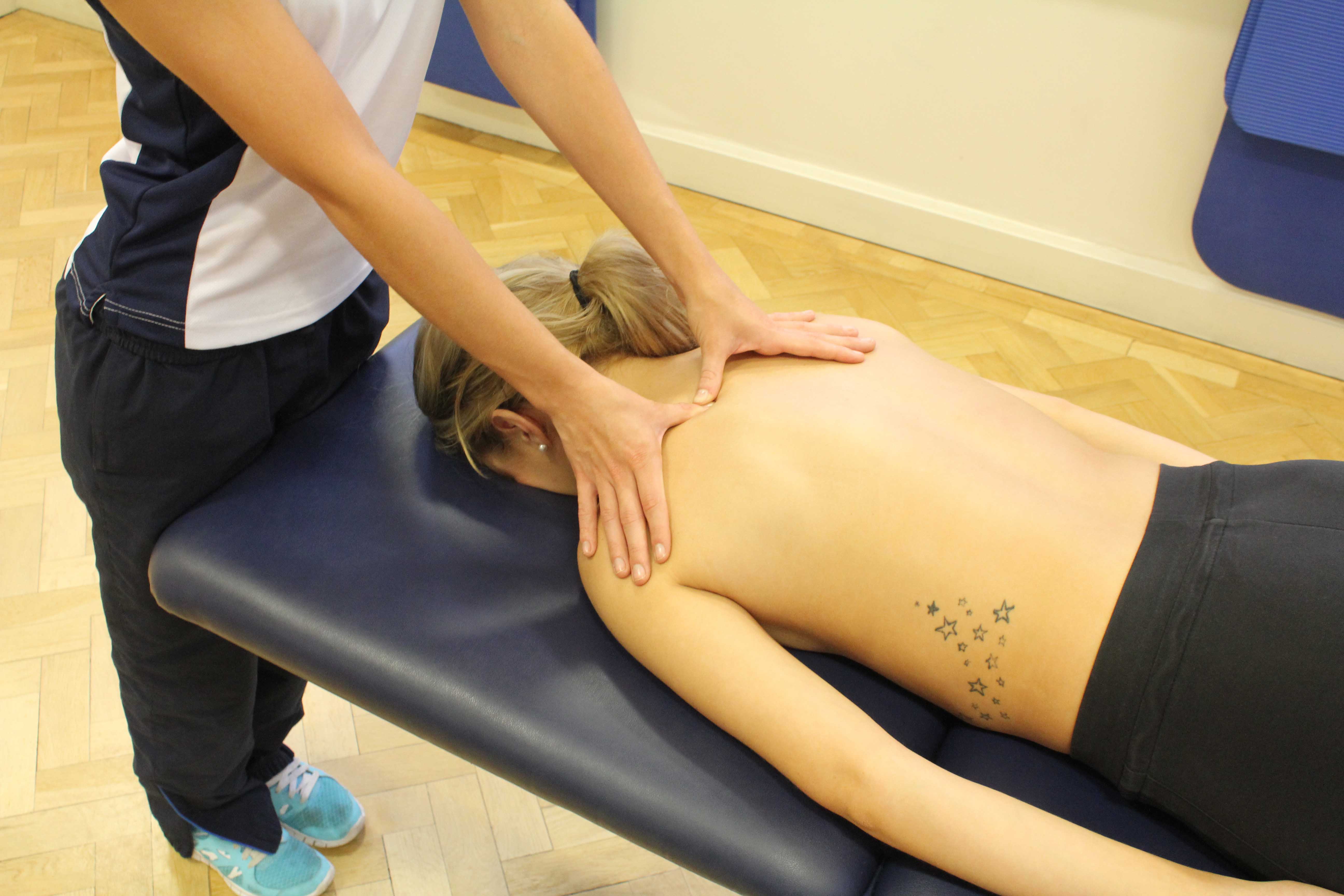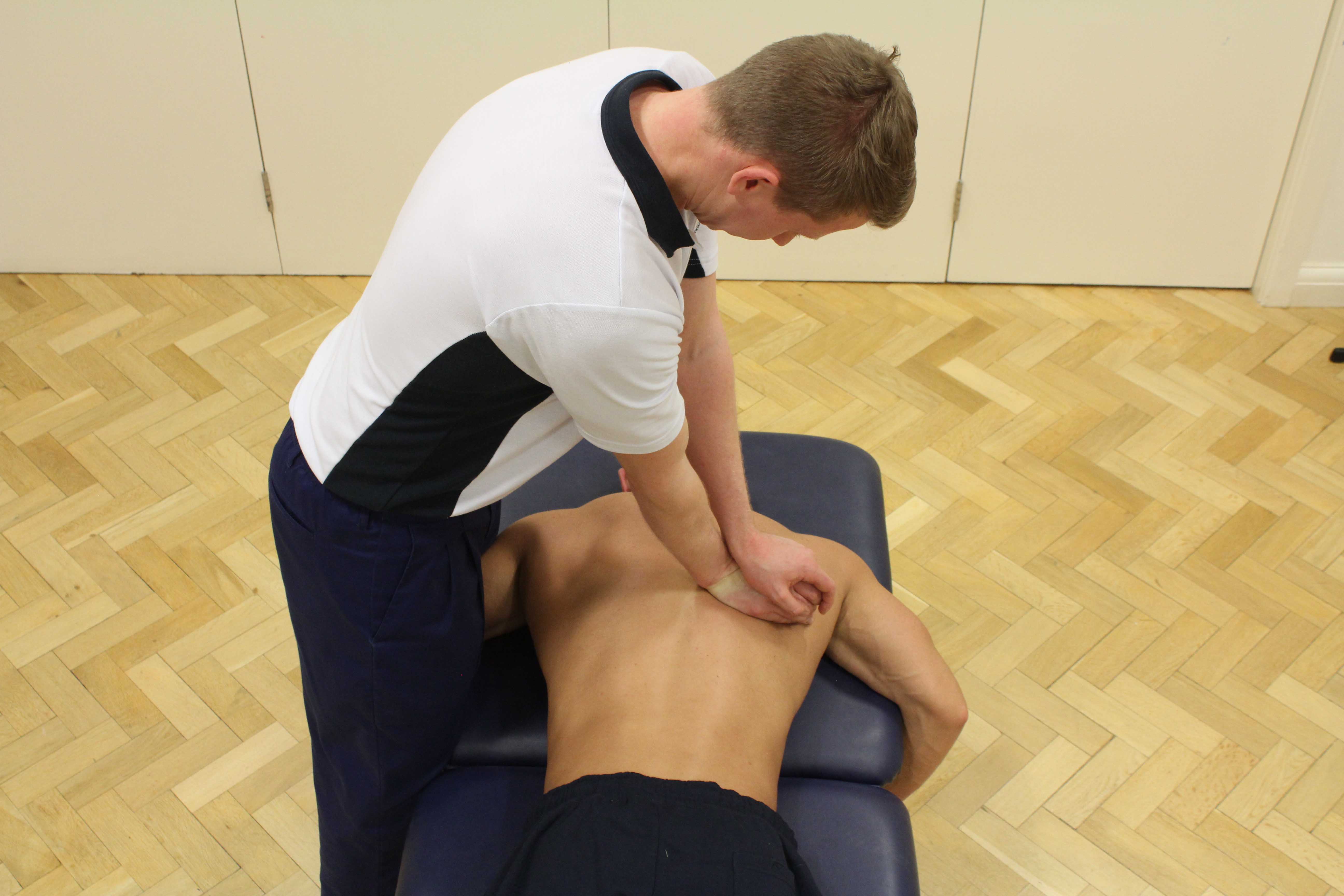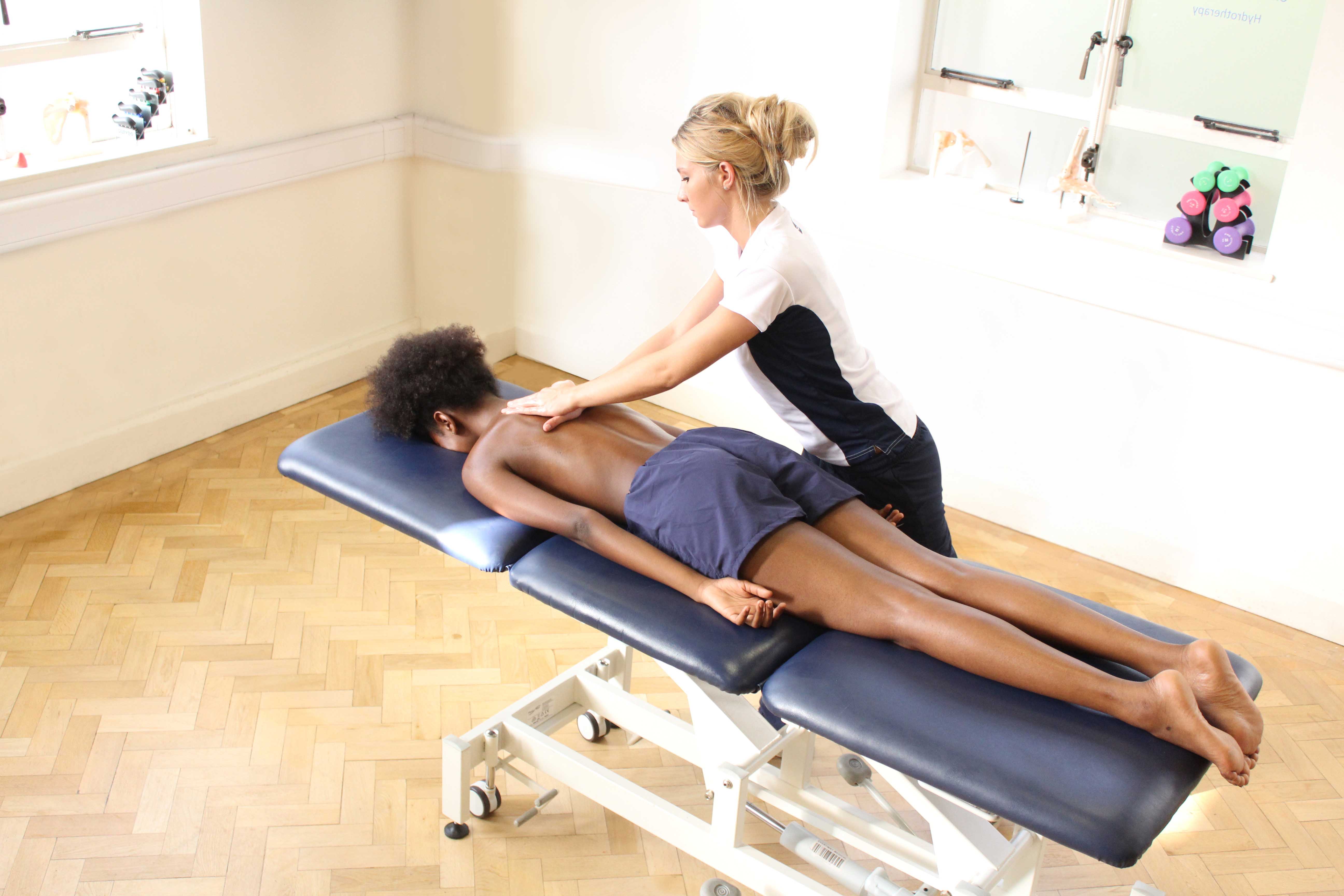What is thoracic spondylosis?
Thoracic spondylosis is a form of osteoarthritis in the thoracic spine (upper back). Physiotherapy is an effective treatment for thoracic spondylosis.
What can cause thoracic spondylosis?
Thoracic spondylosis is caused by wear and tear of the vertebrae and the shock absorbing discs between each vertebrae bone. As we get older, the discs dry out and extra bone often gathers around the vertebrae (osteophytes) which can irritate some of the structures around the spine. Thoracic spondylosis is more common over the age of seventy or if you have had an injury to the spine when you were younger.
 Above: Trigger point massage of the muscles in the upper back by experienced therapist
Above: Trigger point massage of the muscles in the upper back by experienced therapistWhat are the symptoms of thoracic spondylosis?
You will often experience stiffness in the upper back especially when trying to turn around and reaching for objects. You may also find these movements painful. If a nerve becomes trapped or irritated you may experience neurological symptoms including weakness and pins and needles on your back, stomach area or arms. You may feel weaker in these areas and find it difficult to carry out your normal activities of daily living. Other symptoms may include:
What should I do if I have thoracic spondylosis?
If you think you may have thoracic spondylosis, you should visit a physiotherapist as soon as possible who will help you reduce your symptoms. You may also need to see your GP for some painkillers to help you keep the spine moving.
What shouldn’t I do if I have thoracic spondylosis?
You should not ignore your symptoms if you think your problem may be thoracic spondylosis. The longer you leave it, the more likely your condition will progress and you symptoms will become more debilitating.
 Above: Mobilisations of the mid thoracic spine by experienced physiotherapist
Above: Mobilisations of the mid thoracic spine by experienced physiotherapistPhysiotherapy for thoracic spondylosis.
There are a number of physiotherapy treatments that your physiotherapist can offer you to treat thoracic spondylosis. You may receive cryotherapy (ice) or heat to reduce any pain that you have and will be given a series of exercises to improve the range of movement at the thoracic spine. Your home exercise programme will also include specific exercises to strengthen the area which will help minimise your symptoms. Massage and postural advice can be offered to manage your condition.
Other physiotherapy options can include:
Can thoracic spondylosis have any long-term effects?
If you ignore the problem, your symptoms are likely to get worse and cause a lot of pain and stiffness in your upper back. If you do not seek professional help, the thoracic spondylosis could lead to neurological symptoms including weakness and numbness of the upper back and stomach which are more persistent.
 Above: Soft tissue massage of the upper thoracic spine
Above: Soft tissue massage of the upper thoracic spineTo arrange a physiotherapy appointment call Physio.co.uk on 0330 088 7800 or book online.

 0330 088 7800
0330 088 7800

































